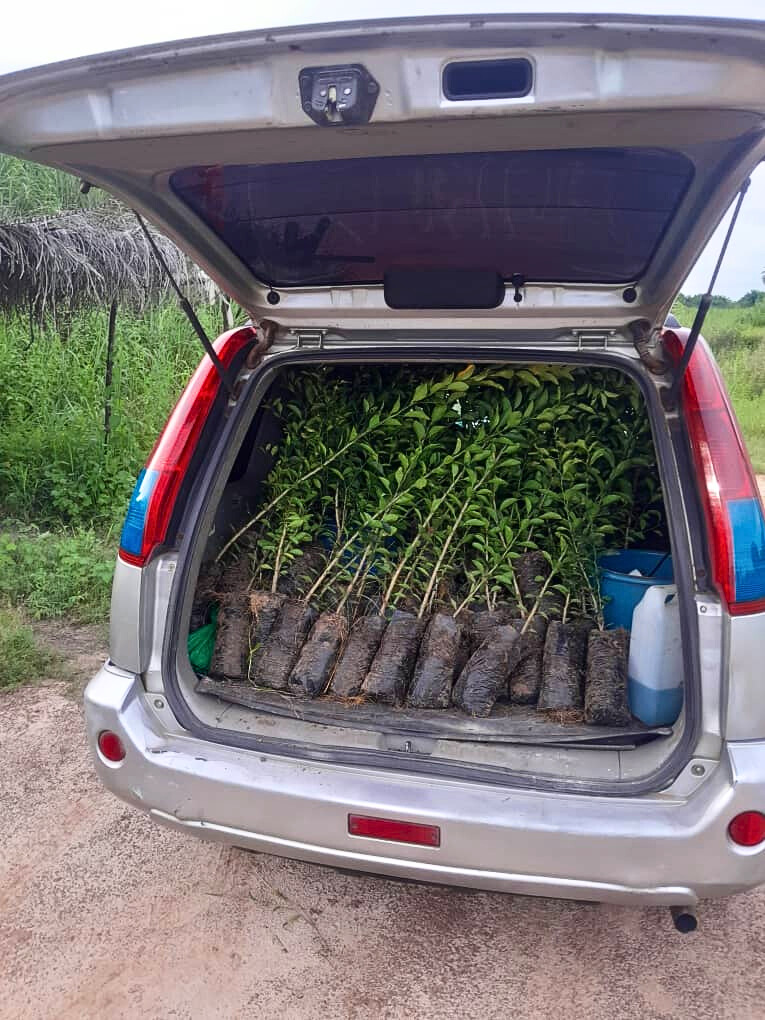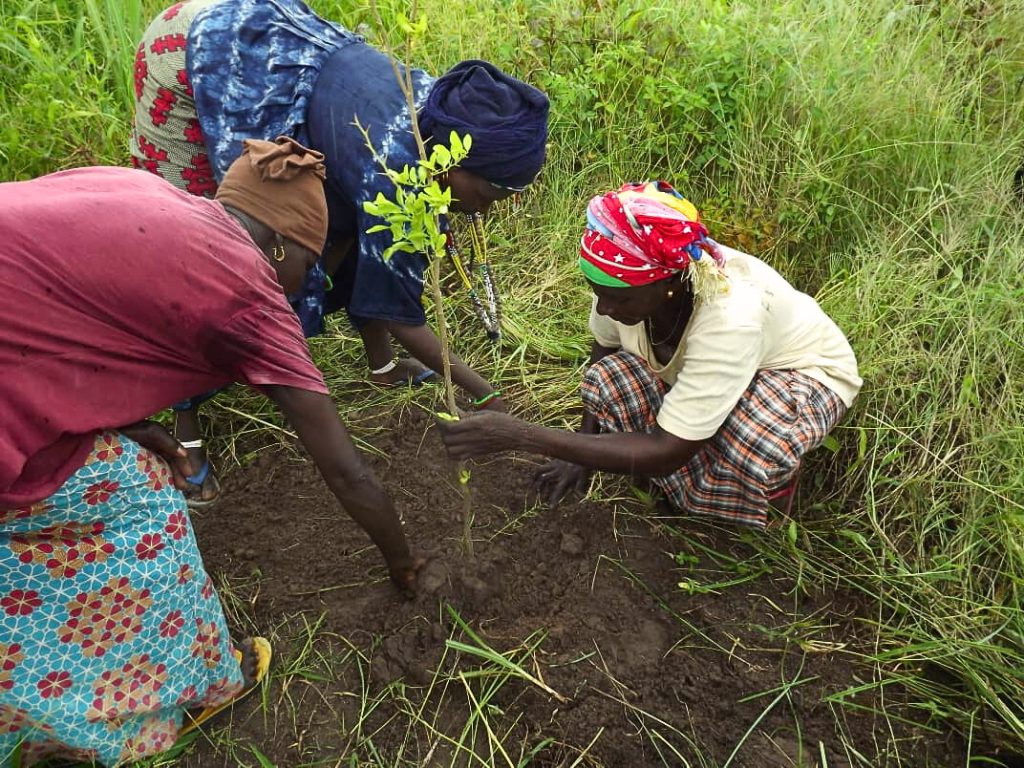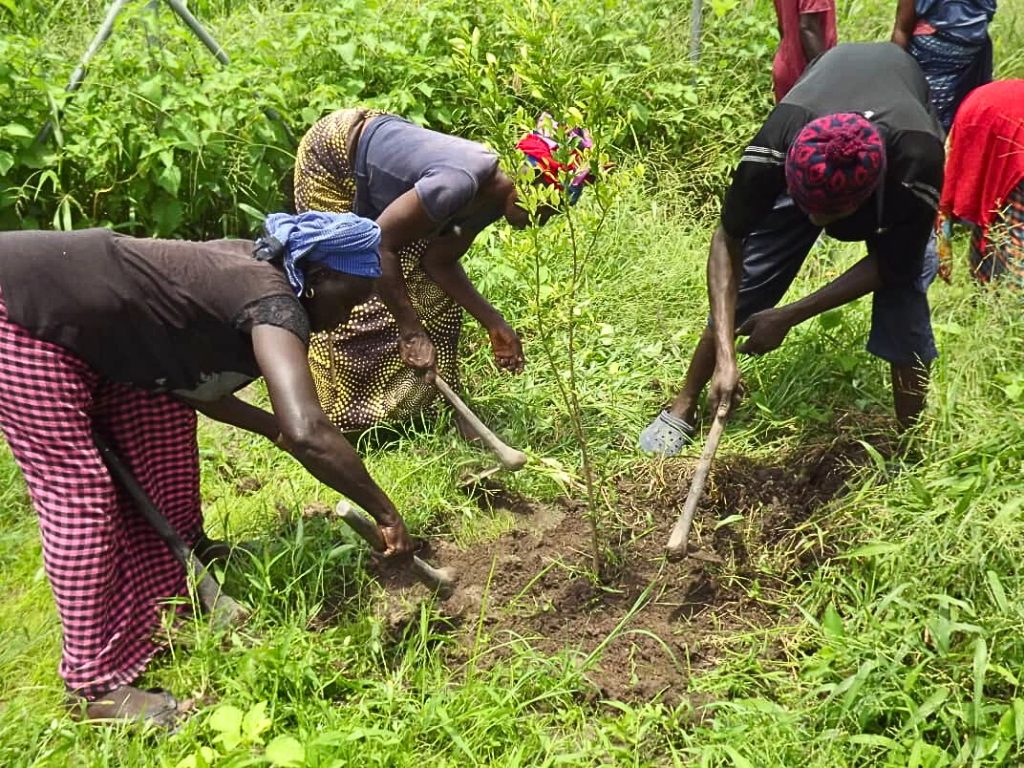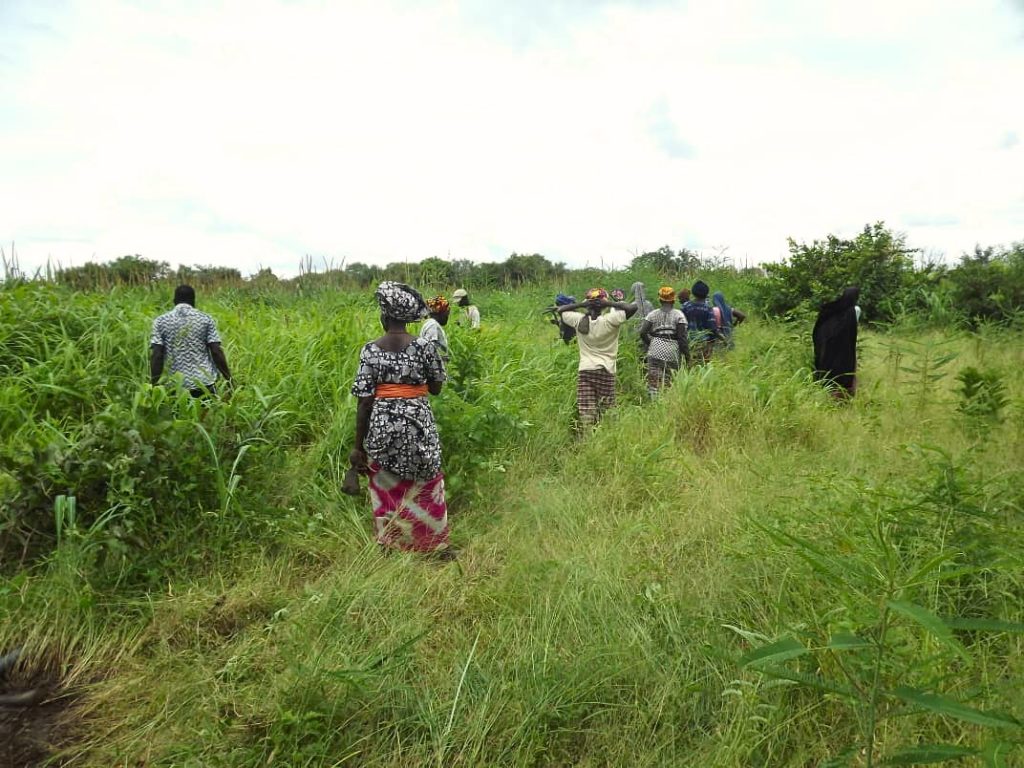Throughout Tesito’s five years, we’ve established various sustainable livelihoods in Jiffarong, including the ca. 2 hectares community garden for 90 women farmers, as well as a cold storage and food processing station (read more here). These improvements have strengthened food security for local households, creating a sustainable source of income.

The community now relies on the two harvests (rainy and dry season harvest) from the garden, and local women work tirelessly not only to grow vegetables, but also to learn how to process and store them. This effort directly increases the market value of their goods and allows families to enjoy their produce for longer periods.
However, the region’s changing climate poses a serious threat to the garden. The year is divided into the dry season and the rainy season. The latter is especially challenging, as heavy rains, thunderstorms, and floods often disrupt the garden. Last year, the rainy season caused particularly severe damage. Strong winds and rain knocked down the garden fence and washed out the irrigation pipes. Amid this destruction, three of the five water tanks toppled from their stands and broke. Storms during the rainy months caused as much as 30% damage to the farmers’ harvest last year.
Fortunately, FFHC and the community members have repaired the damage. Also, the project team has brainstormed ideas to prevent this in the future.

The key issue is the lack of tree cover around the garden. This is a result of wood cutting, grazing livestock, and the naturally dry plain terrain. With little natural protection, the area is left exposed and vulnerable to extreme weather conditions.

This year, Tesito partnered with Symbioosi ry, which provided a grant for planting 327 lemon tree seedlings around the vegetable garden. These seedlings have been planted in the garden area along the fence. This positioning protects the trees from livestock and ensures access to water. Planted along the fence line, the lemon trees will eventually form a natural barrier against the harsh winds. The trees also retain water in the soil, which enhances soil quality and supports better crop growth. An added benefit is that the trees attract bees, which help with pollination.
In the future, the trees’ fruits will also contribute to the sustainability plan of the garden. The farmers will harvest the lemons and sell them at the market, and the income will be used to finance garden maintenance. The women farmers have formed a committee to coordinate taking care of the seedlings, and to manage funds independently after the project phases out.
Thank you Symbioosi ry for supporting the project and funding the tree seedlings to the community garden!
